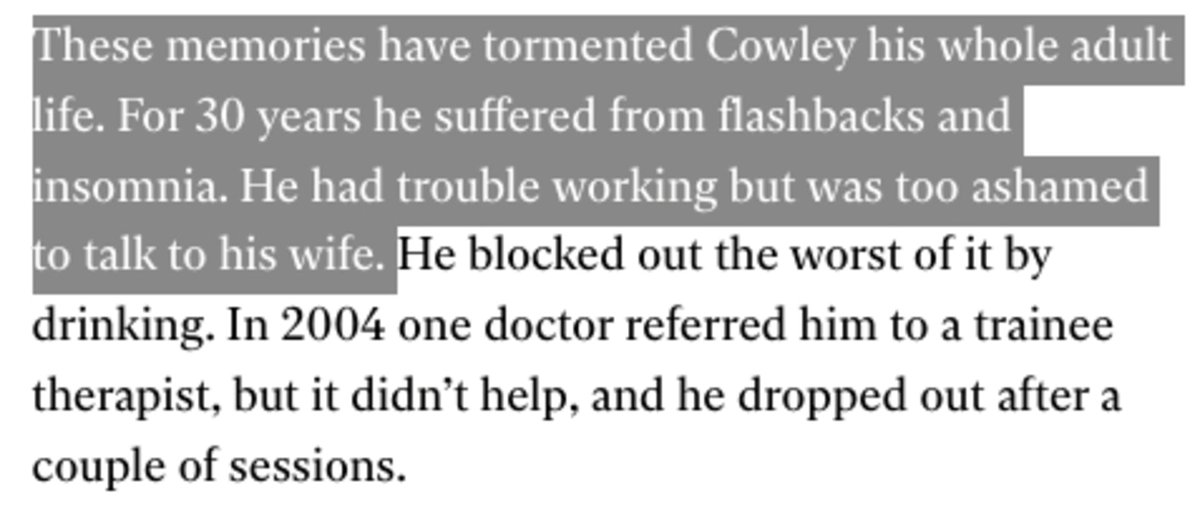
This is a thread about the therapists using artificial intelligence to make therapy better—and how this pioneering new approach to mental health care could lead to more people getting better, and staying better. trib.al/GlYUNIV 

Kevin Cowley was plagued with poor mental health for his entire adult life after surviving the horrific Hillsborough disaster in 1989, when 94 English soccer fans died in a crowd surge. theguardian.com/football/hills…
He suffered flashbacks and insomnia, and blocked out the worst of it by drinking. He tried therapy in 2004, but it didn't help. 

Then, two years ago, he spotted a poster advertising internet therapy, and he decided to give it a go. Cowley, now 49, is at last recovering from severe post-traumatic stress disorder.
“It’s amazing how a few words can change a life,” says Andrew Blackwell, chief scientific officer at @iesogroup, the UK-based mental health clinic treating Cowley. trib.al/GlYUNIV
@iesogroup What’s crucial is delivering the right words at the right time. Blackwell and his colleagues at @iesogroup are pioneering a new approach to mental health care in which the language used in therapy sessions is analyzed by an artificial intelligence. trib.al/GlYUNIV
@iesogroup The idea is to use natural-language processing (NLP) to identify which parts of a conversation between therapist and client seem to be most effective at treating different disorders. trib.al/9pYgCll
@iesogroup The aim is to help experienced therapists maintain a high standard of care and help trainees improve. Amid a global shortfall in care, an automated form of quality control could be essential in helping clinics meet demand, too.
@iesogroup Ultimately, the approach may even reveal exactly how psychotherapy works in the first place, something that clinicians and researchers are still largely in the dark about.
@iesogroup A new understanding of therapy’s active ingredients could open the door to personalized mental-health care, allowing doctors to tailor psychiatric treatments to particular clients much as they do when prescribing drugs. trib.al/GlYUNIV
@iesogroup 👀 READ the full story by @charlottejee and @strwbilly. Their reporting, writing, and summary for our Download newsletter was repurposed for this Twitter thread by @Benji_Rosen. trib.al/GlYUNIV
@iesogroup @charlottejee @strwbilly @Benji_Rosen Want to support more mission-driven journalism like this? Subscribe to @techreview. For $50 per year, you’ll get unlimited access to our journalism. forms.technologyreview.com/subscriptions/…
• • •
Missing some Tweet in this thread? You can try to
force a refresh







